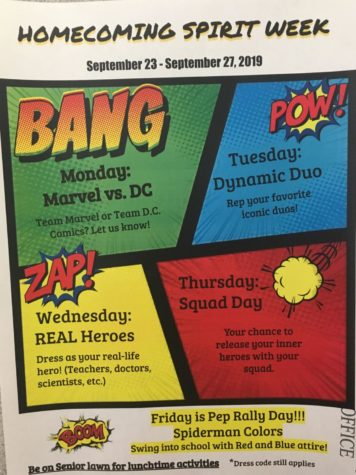Coming out versus being outed
March 28, 2016
Coming out is the act of telling other people that you’re LGBT+. Because I’m transgender, coming out is something that’s really hard to avoid. People tend to assume I’m a girl and that they should refer to me with ‘she’, which leads to one of three exchanges. I could let the conversation go on without correcting them, which would make me incredibly uncomfortable but save the other person from any embarrassment. I could correct them without telling them I’m genderfluid, instead simply telling them that I prefer ‘they’ pronouns, and move on. The third option is for me to tell them that not only do I prefer ‘they’ pronouns, but that I’m genderfluid as well.
The problem with this third option is that it usually results in many uncomfortable questions, a quick lesson on gender for the other person, and it can put me in a lot of danger.
News stories come up almost every week about LGBT+ people getting denied their rights, injured, or even murdered. Over a year ago, Leelah Alcorn committed suicide because of the discrimination and danger she faced simply for being transgender, and her name still rings in my head every time I have to consider who is and isn’t safe to come out to.
With all this going on, it should be obvious that coming out is an incredibly personal and important event for someone. It should also be extremely obvious how scary it can be for other people to know that you’re LGBT+ because someone else is telling them for you. It’s such a scary experience, and one so different from coming out, that it has an entirely different name. This is called being outed, and it was one of the worst experiences of my life.
Several months ago, I decided I was going to begin to come out only to people I trusted completely, and who I knew would accept me. I felt safe doing this because I knew these people and had for years. There were many people, however, that I was still trying to hide the truth from, because I simply didn’t feel safe telling them. I didn’t know them well enough, I didn’t know if they’d be okay with it, I was simply uncomfortable telling them something so personal—the reasons varied for each person, but the consequences remained the same.
One of the people that I did tell didn’t realize that I was keeping it secret from so many, and started to tell other people for me. Nothing, no horror movie, no roller coaster, no video game jump scare has ever put me close to the kind of sheer panic and terror I felt when someone who I hadn’t come out to came up to me and asked me about the ‘rumor that I wasn’t a girl’. I didn’t know what to say; I didn’t want to lie and deny it, but the person who was asking was definitely not supposed to know yet. I was so scared that once I answered that person, I left the classroom and had a panic attack in the hall. I didn’t know who else knew, why this person knew, I didn’t know who was okay with this—I didn’t know anything. I was terrified; I’ve never genuinely feared for my safety while at school until that moment.
I’m incredibly lucky to be able to say that I’ve since fixed this all for myself without putting myself into too much danger. There are many students and even adults, however, that can’t say the same. They’re still in danger because people, whether they have good intentions or not, think that it’s okay to out someone. I’m begging you, the reader, on behalf of all LGBT+ people who have ever lived in fear of being outed to the wrong person—I’m begging you not to out anyone. Whether or not you think it’s a good idea, whether or not you think it’s helpful, you’re doing far more harm than good.




